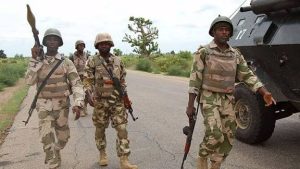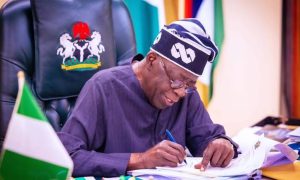
The recent designation of Nigeria as a “Country of Particular Concern” (CPC) by the United States government, coupled with threats of possible military intervention, represents more than a diplomatic reprimand; it constitutes a fundamental stress test for the architecture of Nigeria’s foreign policy. This designation, emanating from the International Religious Freedom Act, indicts the Nigerian state for its alleged “tolerance of systematic, ongoing, and egregious violations of religious freedom.”
Transcending the immediate stigma and its attendant implications, the CPC label forces a trenchant interrogation into whether Nigerian diplomacy is effectively in a state of suspended animation, a limbo characterised by reactive posturing and strategic drift. A preliminary diagnosis suggests the latter.
The current administration’s response to the initial allegations of genocide against Christians and later designation has thus far been a disturbing display of diplomatic dissonance, a blend of performative defiance and strategic negligence. While the official rebuttal rightly asserts national sovereignty, it has failed to articulate a countervailing narrative backed by demonstrable, on-the-ground improvements in security and human rights in the country.
This reaction betrays a foreign policy apparatus that is fundamentally reactive, operating without a proactive, doctrine-driven framework and coordinated responses to manage complex international reputational threats and national security.
The roots of this putative limbo are multifaceted. Internally, at the moment, the country’s diplomatic machinery is critically enfeebled. A startling number of key diplomatic posts, including mission-critical capitals, remain vacant, presided over by chargés d’affaires lacking the ambassadorial heft to engage in high-level advocacy and diplomatic lobbying.
The decline of the country’s diplomatic capacity started in the previous administration when the number of politicians appointed as ambassadors without prerequisite experience seemed to have eclipsed the number of career diplomats. For instance, in July 2020, former President Muhammadu Buhari approved the posting of 52 non-career ambassadors and 43 career ambassadors to Nigerian Missions abroad.
This institutional hollowing-out has occurred alongside a pervasive domestic security crisis that has rendered the state’s primary mandate, the protection of lives and property, a seemingly unattainable hollow proposition. When a government is perceived as failing to guarantee fundamental security within its own borders, its moral authority to contest international censure on human rights grounds is profoundly compromised.
Externally, the geopolitical landscape has grown increasingly unsympathetic. The era of non-alignment as a passive strategy has ended. The global arena is now defined by sharp power competition and values-based alliances, wherein a nation’s human rights record is inextricably linked to its diplomatic capital and access to strategic partnerships. The nation’s traditional reliance on its demographic and economic weight as inherent leverage is proving insufficient in this new era, where trust and demonstrated governance standards are paramount.
To break free from this diplomatic paralysis, the country must transition from lamentation to strategy. This necessitates a fundamental recalibration of its foreign policy away from broad, often sentimental, Pan-Africanist rhetoric and towards a precise, interest-driven doctrine. The focal point of its engagement with the United States and other Western partners should immediately shift from contesting the CPC designation to proactively tackling its underlying causes.
The more strategic and pragmatic approach would involve championing the utility of targeted mechanisms like the Global Magnitsky Sanctions( GMS) as a surgical alternative to the blunt instrument of the CPC designation. Through proactive collaboration with international intelligence agencies to identify, investigate, and sanction specific individuals and entities responsible for funding mass violence and perpetrating human rights abuses, the country could demonstrate a concrete commitment to accountability that far outweighs the diplomatic value of any verbal rebuttal.
The question posed by the allegations of genocide against Christians and the subsequent CPC designation by the US is not merely one of religious freedom, but of Nigeria’s capacity for resilient and effective sovereignty in the 21st century. President Donald Trump’s statement on the matter serves as a stark wake-up call to its leadership.
The limbo does not seem to be a temporary predicament but a symptom of a deeper diplomatic vacuity. Now, amid its designation, there is a pressing need for the nation to restructure and reinvigorate its international relations by appointing astute and seasoned professional diplomats to manage the diplomatic and economic fallout.
Also, to escape this limbo requires more than diplomatic notes of protest; it demands a coherent, actionable foreign policy framework, the political will to confront internal security failures, and the strategic acumen to leverage precise legal tools over polemical disputes. The world is not merely watching; it is categorising. Nigeria must rise to the occasion and decide whether it will be a master of its diplomatic destiny or a permanent subject of external critique, sanctions, and threats of military interventions.
Augustine Eigbe, PhD, is a historian and development communication expert



